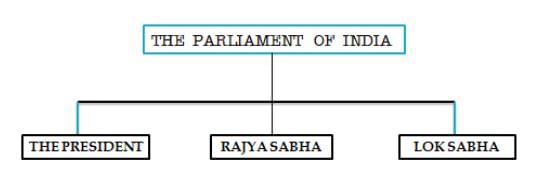Test: Constitution Of India - 1 - CLAT MCQ
30 Questions MCQ Test - Test: Constitution Of India - 1
Which one of the following is not mentioned in the preamble of the Constitution of India?
Who among the following was the chairman of drafting committee?
The Indian constitution closely follows the constitutional system of:
Constitution of India was adopted by constituent assembly on?
Which one of the following is not a salient feature of the Indian judiciary?
In which case it was held that preamble is not a part of constitution of India?
Who among the following is known as the father of the Indian Constitution?
In which article of constitution, the govt. abolished the practice of untouchability?
Which type of equality is negatively enumerated in Art. 14 of the constitution of India?
Which articles defines prohibition of discrimination only on grounds of religion, place, caste, sex or place of birth?
In which of the following ways can Indian citizenship be acquired?
What does the "life of contradiction" mentioned in the passage refer to?
According to Dr. Ambedkar, what will happen if we continue to deny equality in our social and economic systems?
According to Dr. Ambedkar, what would be the reason if the new Constitution fails?
Sakshi, accused of murdering her husband, is the only person with access to their farmhouse apart from the victim. Authorities obtained a warrant to search Sakshi's house, but she opposed it, claiming the search violated her right against self-incrimination as it might force her to produce evidence against herself.
Selvi, charged under POCSO for sexual assault and grievous hurt, challenges a magistrate’s approval for a narcotics test. In this test, the accused is sedated and interrogated in a hypnotic state, where answers might be involuntary. Selvi argues that such tests violate the right against self-incrimination.
Allowing Narcotics Analysis with Consent
In the same scenario, Selvi consents to the narcotics test, claiming it might prove innocence. However, the court hesitates, fearing that allowing such tests could set a dangerous precedent, promoting measures that undermine the accused’s autonomy over disclosing information.
Under what circumstances can a bad Constitution function effectively?




















